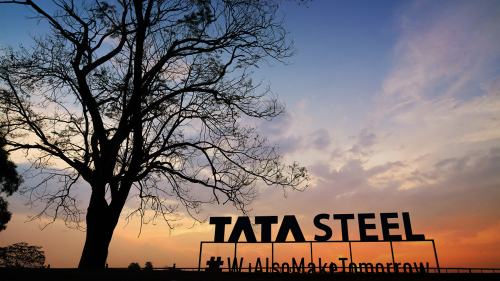This site uses cookies to provide you with a great user experience. By using BondbloX, you accept our use of cookies.
Bond Market News
Tata Steel Upgraded to BB on Significant Expected Deleveraging by S&P
August 4, 2021

India’s leading steel producer Tata Steel Ltd. and its subsidiary ABJA Investment Co. along with its senior unsecured notes have been upgraded to BB from BB- with a stable outlook by S&P based on the company’s strong operating cash flows and its commitment to deleverage. The company had a reported debt of INR 1.1tn ($14.8bn) in March 2020 and managed to reduce it by $2.5bn within a year to INR 915bn ($12.3bn) as at March 2021. According to the rating agency, Tata Steel’s adjusted debt is expected to fall by another ~30% to INR 600bn ($8.1bn) by the end of March 2023. The deleveraging is likely to progress faster than the company’s stated plans of reducing debt by at least $1bn per year on the back of strong steel prices. The company’s EBITDA is forecasted to be ~INR 1tn ($13.5bn) over the fiscals 2022 and 2023 despite an expected drop of 10% in steel prices in 2023. Expansion of its Kalinganagar facility also aids the strengthening credit profile of the company. At current steel prices and expected debt levels, the company’s FFO-to-debt ratio is forecasted to exceed 45% over the next two years.
The rating agency said, “Deleveraging should improve resilience of Tata Steel’s credit metrics through the steel price cycle. We expect the company’s ratio of funds from operations (FFO) to debt to remain above 25% even at mid-cycle prices, a level at which we estimate the company’s EBITDA per metric ton to be about half the current level. Furthermore, we estimate Tata Steel’s FFO-to-debt ratio at about 15% at the bottom of the steel cycle, well above the 6% the company reported in fiscal 2020.” S&P had earlier raised the rating of the steel producer to BB- from B+ in April this year. Tata Steel was upgraded to BB by Fitch on May 19 earlier this year and is rated Ba2 by Moody’s.
Abja’s 4.95% 2023s and 5.45% 2028s were stable at 103.34 and 106.5 respectively.
For the full story, click here
Go back to Latest bond Market News
Related Posts:








